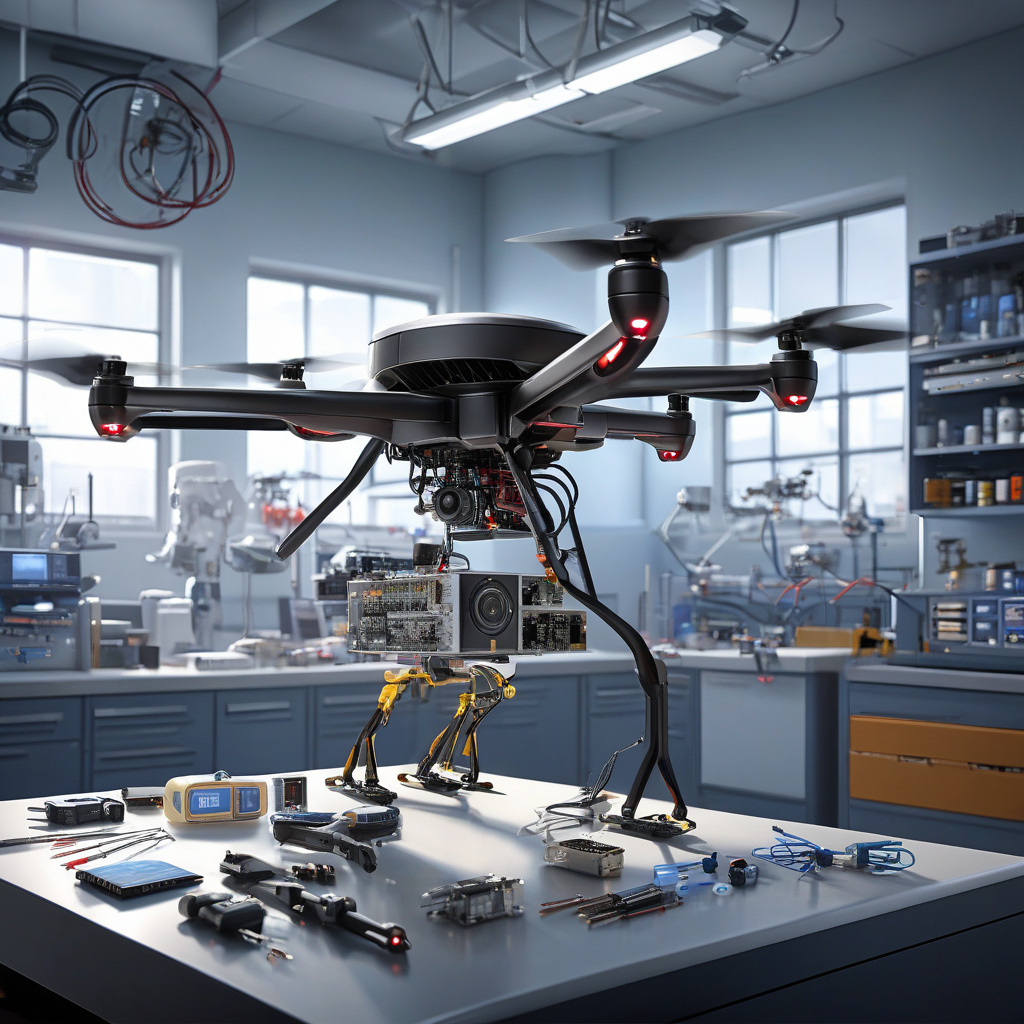US Develops High-Performance 3-Hour Drone Battery Free from China’s Control on Key Metals
Lyten, a San Jose-based company developing lithium-sulfur battery technology, has launched a new initiative to revolutionize the drone industry. With the growing demand for drones in various sectors like agriculture, surveillance, and logistics, the need for longer-lasting and more efficient batteries is paramount. What sets Lyten’s innovation apart is its independence from China-controlled key metals, a significant breakthrough that could reshape the future of drone technology.
The reliance on China for essential metals like cobalt, nickel, and lithium has long been a concern for industries dependent on battery technologies. The recent trade tensions and supply chain disruptions have further highlighted the risks associated with this dependency. Lyten’s lithium-sulfur battery not only reduces the reliance on these key metals but also offers superior performance compared to traditional lithium-ion batteries.
One of the main advantages of Lyten’s lithium-sulfur battery is its impressive energy density, which translates to longer flight times for drones. This extended battery life of up to 3 hours addresses a critical limitation in current drone technology, opening up new possibilities for applications that require prolonged aerial surveillance or data collection. Additionally, the lightweight nature of lithium-sulfur batteries contributes to improved drone agility and overall performance.
Moreover, by eliminating the need for China-controlled key metals, Lyten’s innovation enhances supply chain security and mitigates geopolitical risks for drone manufacturers and operators. This strategic advantage not only ensures a stable production process but also reduces the vulnerability to market fluctuations and trade disputes, providing a competitive edge in the global drone market.
Beyond the drone industry, the development of a high-performance battery free from China’s control on key metals could have far-reaching implications for various other sectors. Electric vehicles, consumer electronics, and renewable energy storage are just a few areas that could benefit from this innovation. By diversifying the sources of essential battery materials, companies can strengthen their resilience to external disruptions and contribute to a more sustainable and secure supply chain ecosystem.
As Lyten continues to advance its lithium-sulfur battery technology, the potential for widespread adoption across industries is promising. The scalability of this innovation, coupled with its environmental benefits and strategic advantages, positions it as a game-changer in the realm of energy storage. By paving the way for a future where high-performance batteries are not beholden to geopolitical constraints, Lyten is driving innovation and shaping a more resilient and sustainable energy landscape.
In conclusion, Lyten’s development of a powerful 3-hour drone battery free from China-controlled key metals marks a significant milestone in the evolution of battery technology. By combining superior performance with supply chain security, this innovation has the potential to revolutionize not only the drone industry but also various other sectors reliant on advanced energy storage solutions. As companies increasingly prioritize resilience and sustainability in their operations, Lyten’s lithium-sulfur battery stands out as a beacon of innovation and progress.
#US, #DroneTechnology, #BatteryInnovation, #SupplyChainSecurity, #SustainableEnergy












